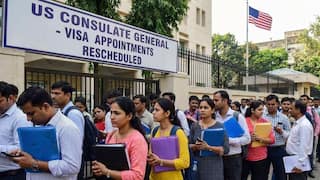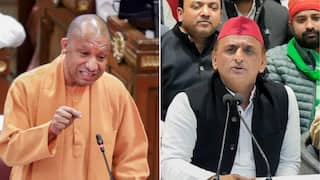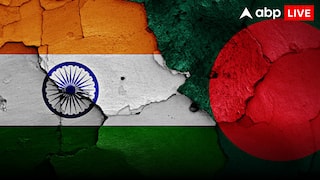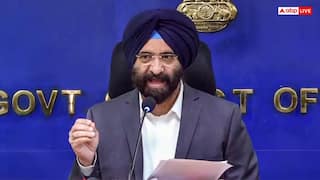Rabindranath Tagore And The Relevance Of His Thoughts On Nationalism And 'Freedom' In Modern India
Rabindranath Tagore's philosophy on nationalism was beyond political freedom & territorial boundaries. He emphasised the significance of moral, spiritual freedom as the bedrock of true emancipation.
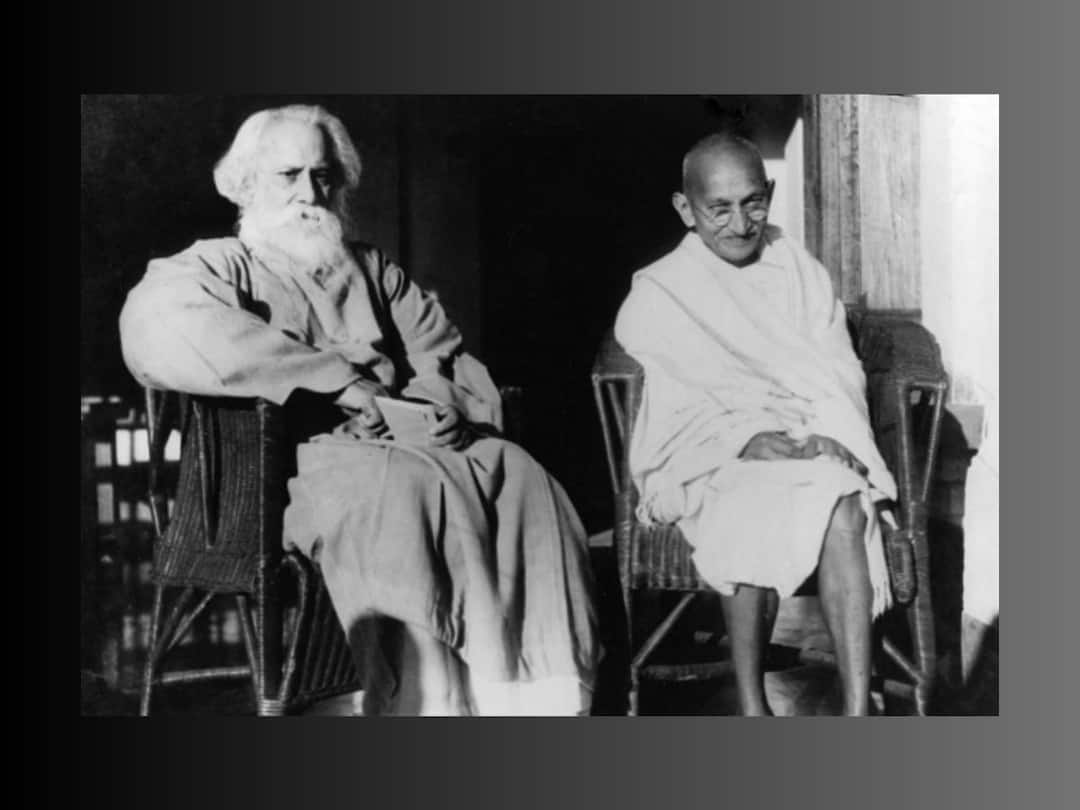
Nobel laureate polymath Rabindranath Tagore was not only a literary genius but also a profound thinker. The versatile Tagore used his poems, songs, short stories, novels, plays, and even paintings, as his tools to articulate his opinions on a range of issues and emotions, and the political upheaval that India witnessed in its pursuit for freedom from the British rule did not remain untouched in his art. Tagore's writings were often infused with political and social commentary, and he was a vocal critic of British imperialism. His wrote extensively on nationalism. His philosophy deferred from the prevailing ideology of nationalism, though.
Throughout his writings, Tagore expressed his thoughts on the dangers of narrow nationalism and its potential to stifle true human progress. His vision of nationalism transcended mere political boundaries and material pursuits, urging societies to embrace spiritual and moral freedom as the foundation for true liberation.
He at times saw nationalism as a divisive and destructive force.
"Nationalism is a great menace to the world. It is the particularism of the human mind which is the greatest obstacle to the realization of human unity," Tagore wrote in his 1917 essay, 'Nationalism In India'. He argued that nationalism is based on the false assumption that there is a fundamental difference between people of different nations. He believed that all people are essentially the same, and that we should focus on our common humanity rather than our differences.
From 'Gora' to 'Ghare Baire' to 'Char Adhyay', many of Tagore's writings have nationalism as the central theme, though they spoke of his opinions differing from the prevalent ideals of nationalism. In his 'Nationalism' essay, he said it clearly that his idea of “freedom” was not just political freedom from the British, because "political freedom does not give us freedom when our mind is not free". Though he wanted freedom from the British, he did not believe everything that was British was wrong. He was in favour of imbibing what is good in the West and their amalgamation with the East.
"Those of us in India who have come under the delusion that mere political freedom will make us free have accepted their lessons from the West as the gospel truth and lost their faith in humanity," he wrote.
Rabindranath Tagore died on August 7, 1941. Eighty two years have since passed but his words still resonate. Here are some specific quotes from Tagore's essay 'Nationalism in India', which give a peek into the polymath's mind and his thoughts on nationalism and "freedom", and their relevance in modern India that is going to celebrate 76 years of Independence this month.
5 Tagore Quotes On Nationalism That Continue To Resonate
1. "We must never forget in the present day that those people who have got their political freedom are not necessarily free, they are merely powerful. The passions which are unbridled in them are creating huge organizations of slavery in the disguise of freedom."
In a warning that is still relevant today, Tagore cautioned against the dangers of political freedom without moral and spiritual freedom. He argued that those who are only concerned with political power are ultimately enslaved by their own passions, and become trapped in a cycle of greed and violence. Tagore believed that true freedom comes from within — a freedom that cannot be taken away by any external force.
2. "Our real problem in India is not political. It is social."
These were the opening lines of the essay, in which Tagore argued why the real problem in India was not political, but social. He believed the focus on political unity in India was a result of imitating Western ideals, and that this social problem was not unique to India but existed in various forms among all nations. He went on to say that the Indian society was trying to replicate the Western ideals of politics without fully understanding the historical and cultural context of the West, as he cautioned against blindly adopting political practices without addressing India's unique social complexities. Tagore believed the focus on political unity in India was a distraction from the real problem, which was social unity — something the country is still strugging to achieve.
3. "The most important fact of the present age is that all the different races of men have come close together. And again we are confronted with two alternatives. The problem is whether the different groups of peoples shall go on fighting with one another or find out some true basis of reconciliation and mutual help; whether it will be interminable competition or cooperation."
Tagore contrasted the historical context of early civilisations with the present age, highlighting the changing dynamics of human interaction and the need for a new approach to global unity and cooperation.
In the early history of human civilisation, he said, the problem of unity and cooperation was relatively simpler, and the moral spirit of cooperation and unity helped them establish harmonious coexistence and collaboration. In the present age, however, when the world had become interconnected, and different races and groups of people had come close together, the humanity was faced with two alternatives — to cooperate or to compete.
Tagore went on to predict that those who constantly displayed an intolerance towards others would eventually be eliminated — not necessarily physically but rather socially and morally due to their inability to adapt to the changing demands of the age.
4. "We, in India, must make up our minds that we cannot borrow other people's history, and that if we stifle our own, we are committing suicide."
Tagore discussed in detail the dangers of trying to adopt Western ideals and values without considering the context of Indian culture and history. He argued that India could not simply "borrow" Western history and expect to be successful. Instead, India needed to develop its own unique path to progress, based on its own traditions and values.
Using the example of Japan to illustrate his point, he wrote how Japan had tried to become a powerful nation by adopting Western methods, but this had only led to the superficial adoption of Western culture. He argued that Japan had not developed its own unique identity, and as a result, it was still vulnerable to Western influence. Tagore believed that India should not make the same mistake, stating that if she neglected her own history, culture, and heritage while trying to emulate Western civilisation entirely, it would essentially be a cultural and national suicide. He said India should find its own path to progress, based on own traditions and values, and find ways to integrate the best of different cultures into her own, creating a new and unique identity.
5. "When our nationalists talk about ideals, they forget that the basis of nationalism is wanting. The very people who are upholding these ideals are themselves the most conservative in their social practice."
Tagore criticised the Indian nationalist movement and its leaders for their failure to address the deep social divisions within India. He argued that the very people who were upholding nationalist ideals were themselves the most conservative in their social practice. Drawing a comparison with Switzerland, he pointed out how different races in that country had been able to unite because they could mingle and marry within, but that was not possible in India due to its strong social barriers between different castes.
Not much has changed even though more than a century has passed since Tagore wrote these lines. The words sound prophetic as he stressed that these social barriers would make it difficult for India to achieve political unity. Tagore asked if the mere name of freedom was worth sacrificing our moral freedom for.


























